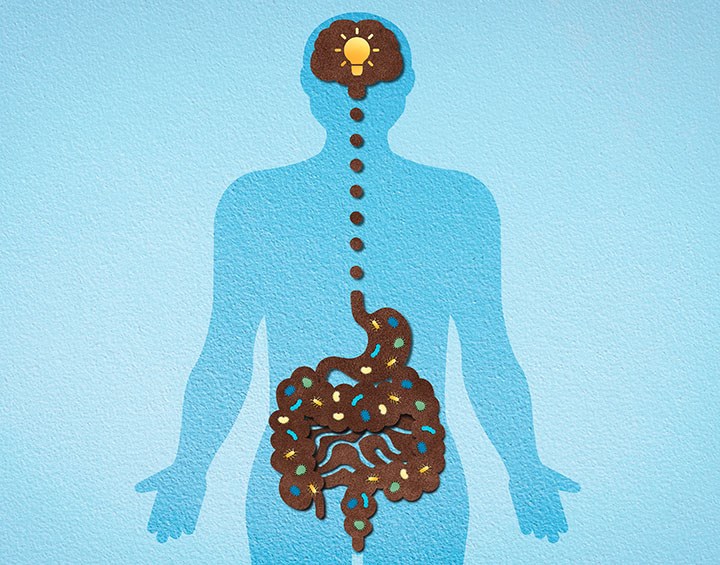One in three people with psychological distress have a Disorder of Gut-Brain Interaction and a new project wants to help

A recent study led by Inês Trindade, researcher at Örebro University, showed that one third of people with psychological distress may also have a gastrointestinal Disorder of Gut-Brain Interactions. Now, she will lead a new research project, funded by FORTE, that aims to help those people.
Inês Trindade is associate senior lecturer at Örebro University and the research environment Center for Health and Medical Psychology (CHAMP). In a recent paper, she and her colleagues showed that one third of individuals with psychological distress also presents symptoms compatible with a Disorder of Gut-Brain Interactions (DGBI), such as irritable bowel syndrome (IBS) or functional dyspepsia (FD). The research study, published in the American Journal of Gastroenterology, was conducted with a global sample of over 54,000 individuals from the Rome Foundation Global Epidemiological Study. The paper was prepared during Inês Trindade’s postdoctoral fellowship at the Sahlgrenska Academy, University of Gothenburg, with Professor Magnus Simrén.
Findings from this study suggest that individuals with psychological distress are more than four times likely to have a DGBI than individuals without psychological distress. Furthermore, the coexistence between psychological distress and DGBI seemed to be especially detrimental to quality of life and healthcare utilisation.
Inês Trindade has recently attracted funding from FORTE, to develop and test the efficacy and cost-effectiveness of an online psychological intervention tailored to people with coexisting psychological distress and DGBI. The intervention, called iACTforDGBI, will be based on Acceptance Commitment Therapy (ACT). Overall, this project aims at alleviating the burden associated with DGBI and the lack of access to mental healthcare faced by people with these disorders. Results will create opportunities for the implementation of the iACTforDGBI intervention in the usual healthcare of people with DGBI in Sweden, promoting their well-being and empowerment, and potentially decreasing costs.
Learn more about the study here:
https://oru.diva-portal.org/smash/record.jsf?pid=diva2%3A1810627&dswid=-5804
